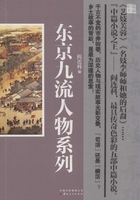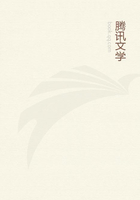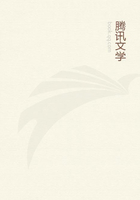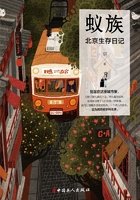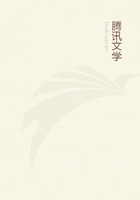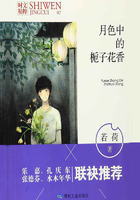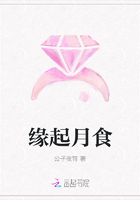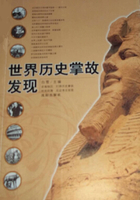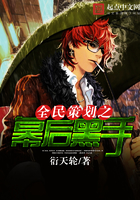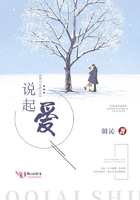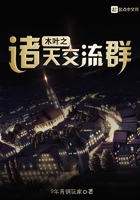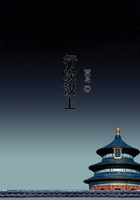On the following Sunday, when the Vicar was making his preparations to go into the drawing-room for his nap — all the actions of his life were conducted with ceremony — and Mrs. Carey was about to go upstairs, Philip asked:
“What shall I do if I'm not allowed to play?”
“Can't you sit still for once and be quiet?”
“I can't sit still till tea-time.”
Mr. Carey looked out of the window, but it was cold and raw, and he could not suggest that Philip should go into the garden.
“I know what you can do. You can learn by heart the collect for the day.”
He took the prayer-book which was used for prayers from the harmonium, and turned the pages till he came to the place he wanted.
“It's not a long one. If you can say it without a mistake when I come in to tea you shall have the top of my egg.”
Mrs. Carey drew up Philip's chair to the dining-room table — they had bought him a high chair by now — and placed the book in front of him.
“The devil finds work for idle hands to do,” said Mr. Carey.
He put some more coals on the fire so that there should be a cheerful blaze when he came in to tea, and went into the drawing-room. He loosened his collar, arranged the cushions, and settled himself comfortably on the sofa. But thinking the drawing-room a little chilly, Mrs. Carey brought him a rug from the hall; she put it over his legs and tucked it round his feet. She drew the blinds so that the light should not offend his eyes, and since he had closed them already went out of the room on tiptoe. The Vicar was at peace with himself today, and in ten minutes he was asleep. He snored softly.
It was the Sixth Sunday after Epiphany, and the collect began with the words: O God, whose blessed Son was manifested that he might destroy the works of the devil, and make us the sons of God, and heirs of Eternal life. Philip read it through. He could make no sense of it. He began saying the words aloud to himself, but many of them were unknown to him, and the construction of the sentence was strange. He could not get more than two lines in his head. And his attention was constantly wandering: there were fruit trees trained on the walls of the vicarage, and a long twig beat now and then against the windowpane; sheep grazed stolidly in the field beyond the garden. It seemed as though there were knots inside his brain. Then panic seized him that he would not know the words by tea-time, and he kept on whispering them to himself quickly; he did not try to understand, but merely to get them parrot-like into his memory.
Mrs. Carey could not sleep that afternoon, and by four o'clock she was so wide awake that she came downstairs. She thought she would hear Philip his collect so that he should make no mistakes when he said it to his uncle. His uncle then would be pleased; he would see that the boy's heart was in the right place. But when Mrs. Carey came to the dining-room and was about to go in, she heard a sound that made her stop suddenly. Her heart gave a little jump. She turned away and quietly slipped out of the front-door. She walked round the house till she came to the dining-room window and then cautiously looked in. Philip was still sitting on the chair she had put him in, but his head was on the table buried in his arms, and he was sobbing desperately. She saw the convulsive movement of his shoulders. Mrs. Carey was frightened. A thing that had always struck her about the child was that he seemed so collected. She had never seen him cry. And now she realised that his calmness was some instinctive shame of showing his feelings: he hid himself to weep.
Without thinking that her husband disliked being wakened suddenly, she burst into the drawing-room.
“William, William,” she said. “The boy's crying as though his heart would break.”
Mr. Carey sat up and disentangled himself from the rug about his legs.
“What's he got to cry about?”
“I don't know.... Oh, William, we can't let the boy be unhappy. D'you think it's our fault? If we'd had children we'd have known what to do.”
Mr. Carey looked at her in perplexity. He felt extraordinarily helpless.
“He can't be crying because I gave him the collect to learn. It's not more than ten lines.”
“Don't you think I might take him some picture books to look at, William? There are some of the Holy Land. There couldn't be anything wrong in that.”
“Very well, I don't mind.”
Mrs. Carey went into the study. To collect books was Mr. Carey's only passion, and he never went into Tercanbury without spending an hour or two in the second-hand shop; he always brought back four or five musty volumes. He never read them, for he had long lost the habit of reading, but he liked to turn the pages, look at the illustrations if they were illustrated, and mend the bindings. He welcomed wet days because on them he could stay at home without pangs of conscience and spend the afternoon with white of egg and a glue-pot, patching up the Russia leather of some battered quarto. He had many volumes of old travels, with steel engravings, and Mrs. Carey quickly found two which described Palestine. She coughed elaborately at the door so that Philip should have time to compose himself, she felt that he would be humiliated if she came upon him in the midst of his tears, then she rattled the door handle. When she went in Philip was poring over the prayer-book, hiding his eyes with his hands so that she might not see he had been crying.
“Do you know the collect yet?” she said.
He did not answer for a moment, and she felt that he did not trust his voice. She was oddly embarrassed.
“I can't learn it by heart,” he said at last, with a gasp.
“Oh, well, never mind,” she said. “You needn't. I've got some picture books for you to look at. Come and sit on my lap, and we'll look at them together.”
Philip slipped off his chair and limped over to her. He looked down so that she should not see his eyes. She put her arms round him.
“Look,” she said, “that's the place where our blessed Lord was born.”
She showed him an Eastern town with flat roofs and cupolas and minarets. In the foreground was a group of palm-trees, and under them were resting two Arabs and some camels. Philip passed his hand over the picture as if he wanted to feel the houses and the loose habiliments of the nomads.
“Read what it says,” he asked.
Mrs. Carey in her even voice read the opposite page. It was a romantic narrative of some Eastern traveller of the thirties, pompous maybe, but fragrant with the emotion with which the East came to the generation that followed Byron and Chateaubriand. In a moment or two Philip interrupted her.
“I want to see another picture.”
When Mary Ann came in and Mrs. Carey rose to help her lay the cloth. Philip took the book in his hands and hurried through the illustrations. It was with difficulty that his aunt induced him to put the book down for tea. He had forgotten his horrible struggle to get the collect by heart; he had forgotten his tears. Next day it was raining, and he asked for the book again. Mrs. Carey gave it him joyfully. Talking over his future with her husband she had found that both desired him to take orders, and this eagerness for the book which described places hallowed by the presence of Jesus seemed a good sign. It looked as though the boy's mind addressed itself naturally to holy things. But in a day or two he asked for more books. Mr. Carey took him into his study, showed him the shelf in which he kept illustrated works, and chose for him one that dealt with Rome. Philip took it greedily. The pictures led him to a new amusement. He began to read the page before and the page after each engraving to find out what it was about, and soon he lost all interest in his toys.
Then, when no one was near, he took out books for himself; and perhaps because the first impression on his mind was made by an Eastern town, he found his chief amusement in those which described the Levant. His heart beat with excitement at the pictures of mosques and rich palaces; but there was one, in a book on Constantinople, which peculiarly stirred his imagination. It was called the Hall of the Thousand Columns. It was a Byzantine cistern, which the popular fancy had endowed with fantastic vastness; and the legend which he read told that a boat was always moored at the entrance to tempt the unwary, but no traveller venturing into the darkness had ever been seen again. And Philip wondered whether the boat went on for ever through one pillared alley after another or came at last to some strange mansion.
One day a good fortune befell him, for he hit upon Lane's translation of The Thousand Nights and a Night. He was captured first by the illustrations, and then he began to read, to start with, the stories that dealt with magic, and then the others; and those he liked he read again and again. He could think of nothing else. He forgot the life about him. He had to be called two or three times before he would come to his dinner. Insensibly he formed the most delightful habit in the world, the habit of reading: he did not know that thus he was providing himself with a refuge from all the distress of life; he did not know either that he was creating for himself an unreal world which would make the real world of every day a source of bitter disappointment. Presently he began to read other things. His brain was precocious. His uncle and aunt, seeing that he occupied himself and neither worried nor made a noise, ceased to trouble themselves about him. Mr. Carey had so many books that he did not know them, and as he read little he forgot the odd lots he had bought at one time and another because they were cheap. Haphazard among the sermons and homilies, the travels, the lives of the Saints, the Fathers, the histories of the church, were old-fashioned novels; and these Philip at last discovered. He chose them by their titles, and the first he read was The Lancashire Witches, and then he read The Admirable Crichton, and then many more. Whenever he started a book with two solitary travellers riding along the brink of a desperate ravine he knew he was safe.
The summer was come now, and the gardener, an old sailor, made him a hammock and fixed it up for him in the branches of a weeping willow. And here for long hours he lay, hidden from anyone who might come to the vicarage, reading, reading passionately. Time passed and it was July; August came: on Sundays the church was crowded with strangers, and the collection at the offertory often amounted to two pounds. Neither the Vicar nor Mrs. Carey went out of the garden much during this period; for they disliked strange faces, and they looked upon the visitors from London with aversion. The house opposite was taken for six weeks by a gentleman who had two little boys, and he sent in to ask if Philip would like to go and play with them; but Mrs. Carey returned a polite refusal. She was afraid that Philip would be corrupted by little boys from London. He was going to be a clergyman, and it was necessary that he should be preserved from contamination. She liked to see in him an infant Samuel.

